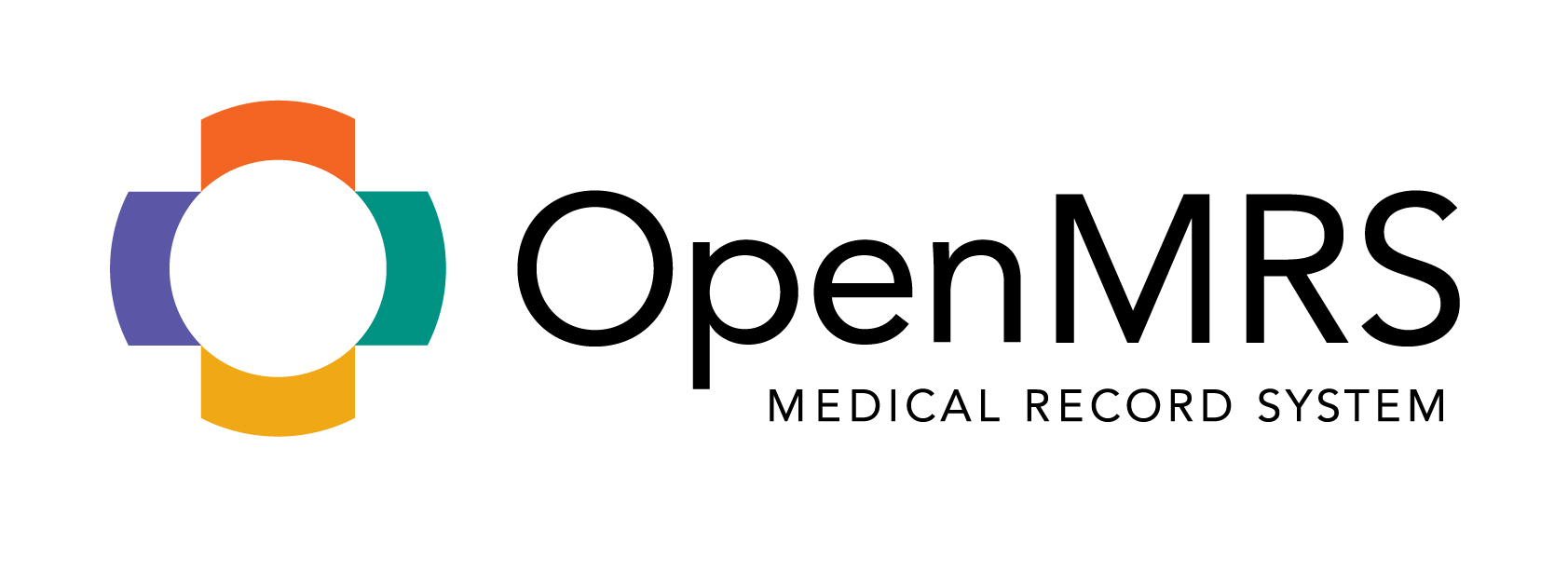api:
test:
tools:
web:
webapp:
OpenMRS is a patient-based medical record system focusing on giving providers a free customizable electronic medical record system (EMR).
The mission of OpenMRS is to improve health care delivery in resource-constrained environments by coordinating a global community that creates a robust, scalable, user-driven, open source medical record system platform.
- Build
- Docker build
- Navigating the repository
- Software Development Kit
- Extending OpenMRS with Modules
- Documentation
- Contributing
- Issues
- Community
- Support
- License
OpenMRS is a Java application which is why you need to install a Java JDK.
If you want to build the master branch you will need a Java JDK of minimum version 8.
Install the build tool Maven.
You need to ensure that Maven uses the Java JDK needed for the branch you want to build.
To do so execute
mvn -versionwhich will tell you what version Maven is using. Refer to the Maven docs if you need to configure Maven.
Install the version control tool git and clone this repository with
git clone https://github.com/openmrs/openmrs-core.gitAfter you have taken care of the Prerequisites
Execute the following
cd openmrs-core
mvn clean packageThis will generate the OpenMRS application in webapp/target/openmrs.war which you will have to deploy into an application server like for example tomcat or jetty.
For development purposes you can simply deploy the openmrs.war into the application server jetty via
cd openmrs-core/webapp
mvn jetty:runIf all goes well (check the console output) you can access the OpenMRS application at localhost:8080/openmrs.
Refer to Getting Started as a Developer - Maven for some more information on useful Maven commands and build options.
Docker builds are still work in progress. We appreciate any feedback and improvements to the process.
The only prerequisite needed is Docker.
In order to build a development version run:
docker-compose buildIt calls mvn install by default. If you would like to customize mvn build arguments you can do so by running:
docker-compose build --build-arg MVN_ARGS='install -DskipTests'It is also possible to use the built dev image to run jetty:
docker-compose upIn order to build a production version run:
docker-compose -f docker-compose.yml buildIt first builds the dev image and then an image with Tomcat and openmrs.war. It has no dev dependencies.
The production version can be run with:
docker-compose -f docker-compose.yml upIf you want to debug, you need to run a development version and connect your debugger to port 8000, which is exposed by default.
Unfortunately, at this point any code changes require full restart and rebuild of the docker container. To speed up the process, please use:
docker-compose build --build-arg MVN_ARGS='install -DskipTests'
docker-compose upWe are working towards providing support for Spring Boot auto-reload feature, which will be documented here once ready.
It is also possible to deploy an image built by our CI, which is published at https://hub.docker.com/r/openmrs/openmrs-core
You can run any tag available with:
TAG=nightly docker-compose -f docker-compose.yml upIt is also possible to run a development version of an image with:
TAG=dev docker-compose upAll development versions contain dev suffix. The cache suffix is for use by our CI.
The project tree is set up as follows:
| api/ | Java and resource files for building the java api jar file. |
| tools/ | Meta code used during compiling and testing. Does not go into any released binary (like doclets). |
| web/ | Java and resource files that are used in the webapp/war file. |
| webapp/ | files used in building the war file (contains JSP files on older versions). |
| pom.xml | The main maven file used to build and package OpenMRS. |
For rapid development of modules and the OpenMRS Platform code check out the awesome SDK at
https://wiki.openmrs.org/display/docs/OpenMRS+SDK
OpenMRS has a modular architecture that allows developers to extend the OpenMRS core functionality by creating modules that can easily be added or removed to meet the needs of a specific implementation.
Before creating your own module go to the OpenMRS Module Repository and see if there is already a module for your specific use case. If so deploy and try it and if a functionality is missing join the developers of the module to add a feature.
If you haven't found what you were looking for refer to the Module - wiki to learn how you can create a new module.
If you want to contribute please refer to these resources
If you are looking for detailed guides on how to install, configure, contribute and extend OpenMRS visit
If you are looking for more information regarding OpenMRS as an organization check
Contributions are very welcome, we can definitely use your help!
OpenMRS organizes the privileges of its contributors in developer stages which are documented here.
Read the following sections to find out where you could help.
Check out our contributing guidelines, read through the Developer guides.
After you've read up 👓 grab an introductory issue that is Ready For Work.
You might not have the time to develop yourself but enough experience with OpenMRS and/or reviewing code, your help on code reviews will be much appreciated!
Read
https://wiki.openmrs.org/display/docs/Code+Review
and get started with re-:eyes: pull requests!
We use
https://www.transifex.com/openmrs/OpenMRS/
to manage our translations.
The messages.properties file in this repository is our single source of
truth. It contains key, value pairs for the English language which is the
default.
Transifex fetches updates to this file every night which can then be translated
by you and me on transifex website itself. At any time we can pull new translations from transifex
back into this repository. Other languages like for ex. Spanish will then be in
the messages_es.properties file.
If you would like to know how to help with translations see
http://openmrs.org/join-the-community/translate/
If you want help fix existing issues or you found a bug and want to tell us please go to
Talk to us on OpenMRS Talk



